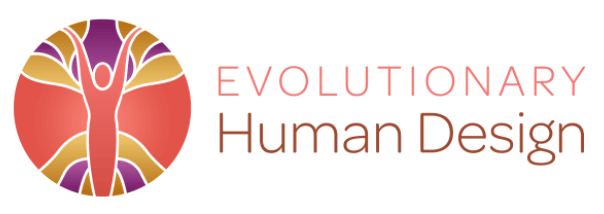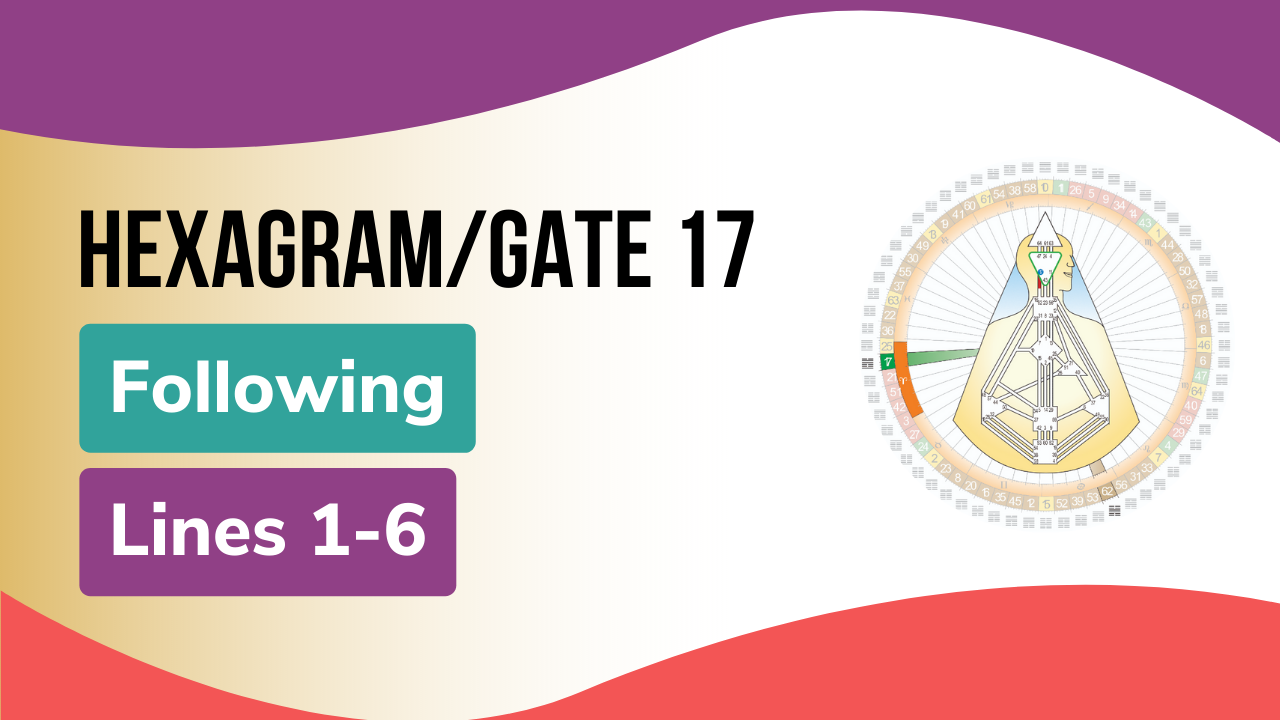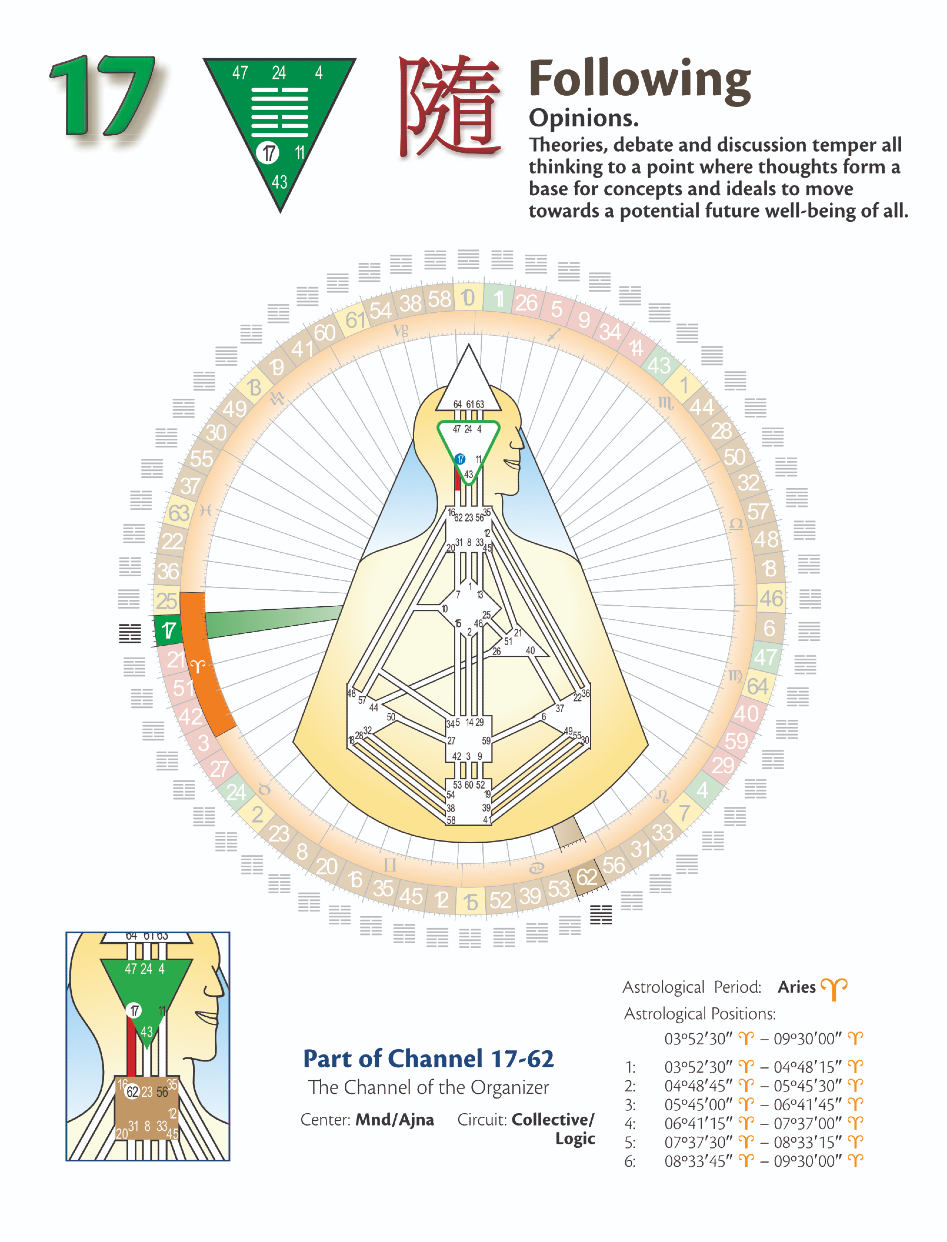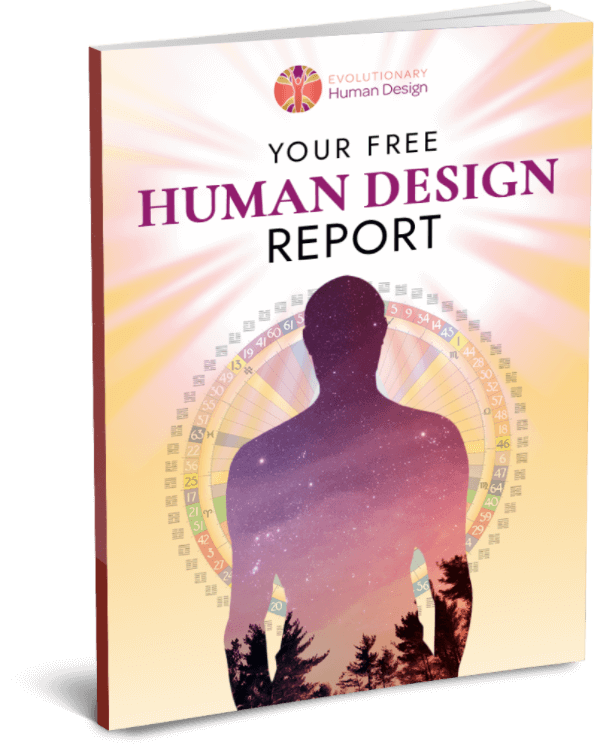How do we arrive at concepts that push the world forward? How do we break free of dogma and stale belief systems to share knowledge, wisdom and ideas that help us all to progress, blossom, and expand? Gate 17 in the Human Design System points us in the right direction.
Last time, we explored Hexagram 25, learning how being true to our innocent nature can open our eyes to the miracle of life itself. Now, the sun is moving into Gate 17, which is the gateway we call “Following.” From this place of innocence, we’ve entered into a place where we’re beginning to form some concepts, ideas, and opinions about what it is that we perceive in life around us.
Gate 17 is in the Logic Circuitry, and we call it “following” because each thought process follows another in a logical progression—or at least that’s the way it’s set up, but as you know, life is not logical. Gate 17 is about seeing your way forward, looking into the future and deciding how you’re going to set up your life and get some good results.
The most important thing about logic—and forming logical opinions—is that logic stays up to date. The moment it gets stuck in dogma, the moment it gets codified into a rule system, the whole thing starts to break down.
Theories, debate, and discussion temper all thinking to a point where thoughts form a base for concepts and ideals to move toward a potential future wellbeing for all. Logic is a collective thing based on discussion, debate, and the sharing of progressive concepts. But it’s very important, as an individual, that you’re clear in the opinions you espouse in life. Are they aimed toward the potential wellbeing of all, or are you just stuck in a particular point of view? Are you prepared to move forward?
Let’s take a look at Gate 17 in the Human Design System line by line:
First Line: Being Open-Minded
The first line provides the foundation for the whole Hexagram. And here, the foundation of the 17th gateway is open-mindedness. The foundation of our whole logical thinking process, how we perceive the world around us, is in looking outwards and recognizing the potential dualities in all things. There’s always more than one way of seeing something.
You appreciate many different views of life, none of which by themselves are right or wrong. Morality itself comes into question here. What is morality? Is it what some religious book says in one part of the world? What about all the other religious books and philosophies in other parts of the world? Is it what the judicial system comes out with after much discussion and debate? When it really comes down to it, morality is a personal thing. We all know inside ourselves what is right and wrong.
You’ll promote many different opinions while still holding true to your internal principles. This is the great thing about debate, and even the democratic process itself (in its purest form). Logic is very particular in allowing for all kinds of different opinions. There are many ways of seeing the same thing. The other side of this is the potential for losing sight of your principles when your sense of harmony is disturbed by other people’s opinions. It’s easy to get knocked off balance when you hear a particularly convincing alternate point of view. It can make you question your own principles.
Second Line: Assessing
The second line always has this natural, innocent, almost happy-go-lucky way of going about things. Here, the line is called “Assessing: preferring company that moves you to a higher appreciation of life.” It’s not simply that you prefer people who agree with you all the time. This is about looking to the great teachers in the world, and the people in your life who’ve got it, the ones that can hold onto a thread of thought, but also keep progressing with that thread, taking you into a higher appreciation of life.
You find meaning for yourself by relating with others, whether or not your relationships with them last. There are many teachers in the world, and we learn different things from each of them along the way. But the thing with the second line is that you are drawn to the ones that take you up a notch in your life. Those who don’t get stuck in rigid concepts and stale patterns of thought and belief.
You develop your qualitative opinions through your attention to all of life’s interactions. Some people bring good news, some people not so much, and some people just talk absolute nonsense. But you’ll know when you hear something that grabs your attention. Something that feeds you, gives you that sense of uplift. And logic is always taking us toward the future. You can always tell if an opinion sits well with you because it opens a doorway into a future potential.
Third Line: Selecting
The third line here is called, “Selecting: appreciating the best influences for inner growth.” Third lines always have an experimental nature. They always have the potential to move into new things, new concepts, opening up new thought patterns and possibilities.
It’s such an amazing thing when suddenly a whole realm of thought goes off in your head and you find a new thread to follow. And this line is about selecting and appreciating the best influences for that inner growth. Finding those people who can appreciate and help cultivate that spark within you.
You either foster viewpoints that bring maturity or endorse ones without lasting significance. It’s two sides of the same thing: you either follow the ones that actually hold your attention, or you just get involved in the usual, well-worn lines of thought.
Fourth Line: Being Unselfish
The fourth line is called “Being unselfish: open to finding the best measures to further everyone.” The fourth line is a bit of an echo of the first line. The first line is about being really clear and open-minded. And the fourth line is taking it further by wanting to influence others. You want everybody to join in together, but you have to be really careful about the opinions they’re putting forward. Are they fixed? Are they rigid? Or are they actually considering the potential benefit for all involved?
Opinions can conceal ulterior motives, giving you the opportunity to test your inner principles. Are you in accord with your principles, or are you seeking to find some kind of an advantage by expressing particular thoughts and ideas? It’s a balance, and something to get really clear about.
You have a life-changing effect on others when your motives and principles are aligned. When your motives and principles are aligned and you’re presenting things for the benefit of everybody, and everybody is on board, then you can move forward accordingly.
Fifth Line: Interconnecting
The fifth line is called “Interconnecting: the recognition that we are one.” In this universe where we’re living in this duality, the bottom line is there’s only one thing going on here. It’s called Love. So how do we all learn to get along? How do we relay thoughts, opinions that follow into a progressive future?
You attain your higher aims by your virtue or by attempting to disregard cosmic coincidence. All of us have had a leg up at one point in our lives. We’ve had somebody that recognized us, somebody that gave us a push forward, complimented us, encouraged us, shared something vital with us. So here is a call to recognize the interconnectedness of how people come into your life to bring you that assistance, that spark, that little nudge in the right direction.
Your inventiveness is aligned with spiritual and worldly resolutions. It’s an amazing thing. Your opinions, your thought forms, your open-mindedness can get you to a place where you see everything. You can see where things are heading as they progress. It’s quite a gift.
Sixth Line: Being the Bodhisattva
The sixth line is called “Being the Bodhisattva.” Bodhisattva is the name given to somebody who has come right to the edge of realization, right to the edge of complete understanding, where they are aligned with life itself.
But having seen the edge, they take a step back, because once you become fully-realized and enlightened there’s no point in being here anymore. You cannot desire to come into another lifetime. In taking that step backwards, they can come back in another incarnation and further the lives of other people through all the teaching, spiritual disciplines, and worldly experiences they’ve been gathering along the way in this, and other lifetimes.
They are then able to offer this accrued wisdom into society, but in the end, they find there’s perhaps only a very limited number of people that can actually recognize what it is they’re doing. So, in being the Bodhisattva, there are some people who are going to pick up on what you’re doing instantly, but a lot of people just won’t. A lot of people are going to be rattled by you because you’re throwing the whole concept of life wide open in ways they simply cannot perceive.
You foster and express wisdom in ways to honor and align others in their own lives. You put forward your understanding, your teachings. And it goes beyond merely sharing opinions. You introduce whole thought forms that can constructively build a passage for people to find the way to their own realization.
If you attain a human comprehension of existence, you become a teacher of teachers. Most people, when they come to that place of enlightenment, they don’t say a word about it, because there’s nothing they can easily express in language. They might have other ways of presenting it, maybe through art or music. It’s a bit of an uphill task conveying what they have come to appreciate about themselves and life’s meaning. But it’s also a very compassionate stance in life if they can take it on.
So, there we are, that’s gateway 17 in the Human Design System. We’ll check in again soon. In the meantime, if you’d like to learn more about The Human Design System and discover how your own Design informs and shapes your life, get your Free Human Design Report today.




